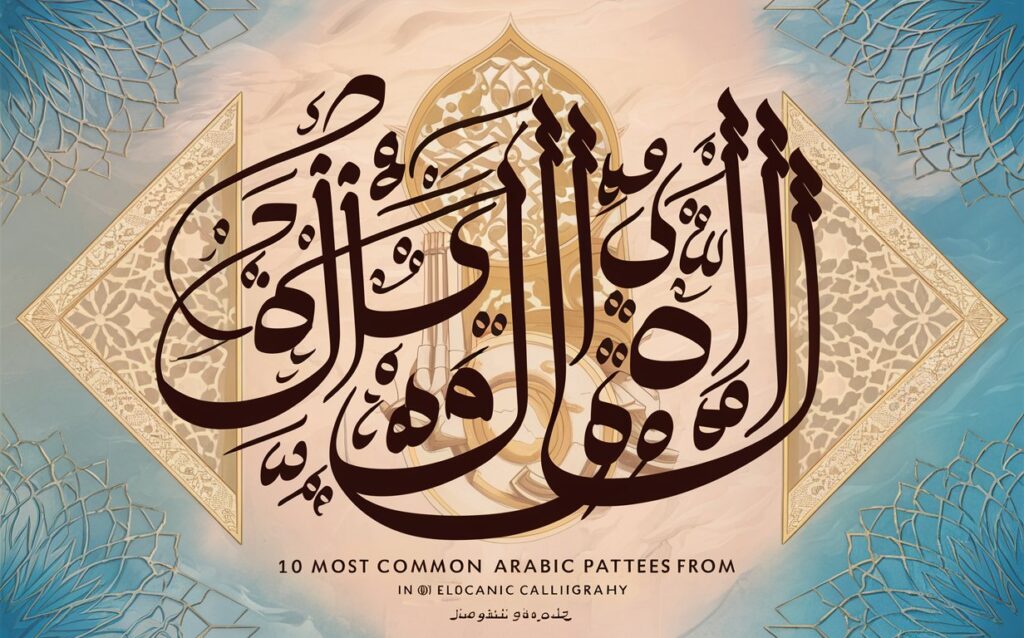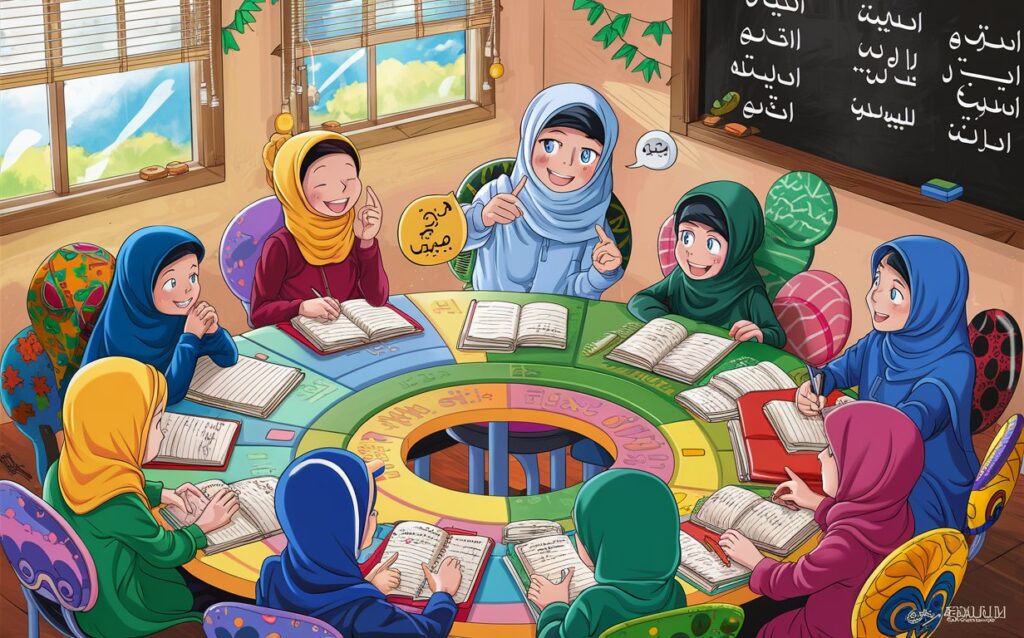
10 Most Commonly Used Arabic Phrases and How to Respond to Them
Arabic is a beautiful and rich language, deeply connected to Islamic culture and used by millions of Muslims around the world. Learning common Arabic phrases can help Muslims engage in daily conversations and connect more deeply with their faith. Whether you’re a beginner or looking to improve your Arabic conversation skills, these everyday Arabic phrases are essential for your journey.
Below are the 10 most used Arabic phrases with their meanings and how to respond to them. Let’s dive into these practical Arabic phrases that you can easily integrate into your daily life!

1. As-salamu Alaikum (السَّلَامُ عَلَيْكُمْ) – Peace Be Upon You
- How to Respond: Wa Alaikum As-salam (وَعَلَيْكُم السَّلَام) – And Peace Be Upon You.
- Meaning: This is the most common Arabic greeting and is used by Muslims worldwide to wish peace upon others.
- Tip: Start every conversation with this Islamic Arabic greeting to foster peace and respect in your interactions.
2. Shukran (شُكْرًا) – Thank You
- How to Respond: Afwan (عَفْوًا) – You’re Welcome.
- Meaning: “Shukran” is an essential part of Arabic language learning. It expresses gratitude when someone helps you or does something kind.
- Tip: Use “Shukran” regularly in conversation to develop good manners, and practice replying with “Afwan.”
3. Kayfa Haluka? (كَيْفَ حَالُكَ؟) – How Are You?
- How to Respond: Alhamdulillah, Ana Bikhayr (الحَمْدُ لِلَّهِ، أنا بِخَيْر) – Praise be to Allah, I am well.
- Meaning: This Arabic greeting is commonly used to check in on someone’s well-being, demonstrating care and concern.
- Tip: After asking “Kayfa Haluka?”, practice saying “Alhamdulillah” to affirm your well-being, both spiritually and physically.
4. Masha’Allah (مَا شَاءَ الله) – What Allah Has Willed
- How to Respond: Jazak Allahu Khair (جَزَاكَ اللهُ خَيْرًا) – May Allah Reward You With Good.
- Meaning: “Masha’Allah” is said to express appreciation or admiration without envy, while “Jazak Allahu Khair” is a beautiful way to acknowledge the blessing.
- Tip: Use “Masha’Allah” when complimenting others or expressing amazement, ensuring that all appreciation is directed towards Allah.
5. Bismillah (بِسْمِ اللهِ) – In the Name of Allah
- How to Respond: No response is needed.
- Meaning: This phrase is said before starting any action, from eating a meal to beginning work, to invite Allah’s blessings.
- Tip: Remind yourself and others to say “Bismillah” before meals, lessons, or any important task. It’s a crucial part of Islamic daily life.

6. Insha’Allah (إِنْ شَاءَ اللهُ) – If Allah Wills
- How to Respond: There’s no specific response needed, but you can affirm with Ameen.
- Meaning: “Insha’Allah” is used to express that something will happen in the future, only if Allah wills it. It reflects the Islamic belief in Allah’s control over all things.
- Tip: Use “Insha’Allah” when talking about your plans or future events, as a way to remind yourself to rely on Allah’s will.
7. SubhanAllah (سُبْحَانَ اللهِ) – Glory Be to Allah
- How to Respond: You can repeat the phrase or nod in agreement.
- Meaning: “SubhanAllah” is said when witnessing something awe-inspiring, and it glorifies Allah for His perfection and greatness.
- Tip: Practice saying “SubhanAllah” whenever you see something amazing, whether in nature or in your daily life.
8. Barak Allahu Feek (بَارَكَ اللَّهُ فِيكَ) – May Allah Bless You
- How to Respond: Wa Feek (وَفِيكَ) – And You Too.
- Meaning: This common Arabic phrase is used to show appreciation, kindness, and to ask for Allah’s blessings upon someone.
- Tip: Use “Barak Allahu Feek” in situations where someone helps or benefits you in any way, reinforcing the habit of blessing others.
9. Astaghfirullah (أَسْتَغْفِرُ اللَّهَ) – I Seek Forgiveness from Allah
- How to Respond: You can repeat “Astaghfirullah” silently or nod in reflection.
- Meaning: This phrase is used to seek forgiveness for mistakes, bad thoughts, or actions. It’s a way to return to Allah after any wrongdoing.
- Tip: Incorporate “Astaghfirullah” into your daily Arabic phrases, especially when reflecting on your actions or seeking improvement in your life.
10. La Hawla wa La Quwwata Illa Billah (لَا حَوْلَ وَلَا قُوَّةَ إِلَّا بِاللَّهِ) – There is No Power or Strength Except Through Allah
- How to Respond: You can reflect silently or repeat the phrase.
- Meaning: This is said during times of hardship, acknowledging that all power and strength come from Allah alone.
- Tip: Use this phrase during challenging moments, reminding yourself of Allah’s support and guidance.
Conclusion: Practice Makes Perfect
These 10 essential Arabic phrases are not only part of daily conversations, but they also carry deep meaning rooted in Islamic values. By practicing these phrases and their responses, you’ll be able to enhance your Arabic communication skills and gain a deeper connection to the Islamic faith.
At Roots Muslim School, we encourage our students to use these basic Arabic phrases in their everyday life, whether at school, home, or with friends. Learning Arabic is an important step in understanding the Quran and Islamic teachings, so why not start today?
Join our Arabic Language Learning Challenge! Practice these common Arabic phrases with your friends and family. Share your progress with us by tagging #RootsArabicChallenge. Let’s master Arabic together and grow in both knowledge and faith! 🌿
